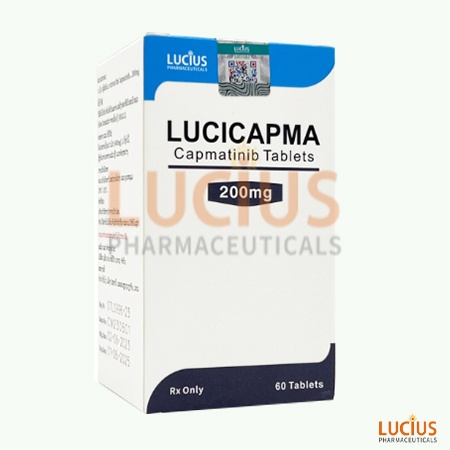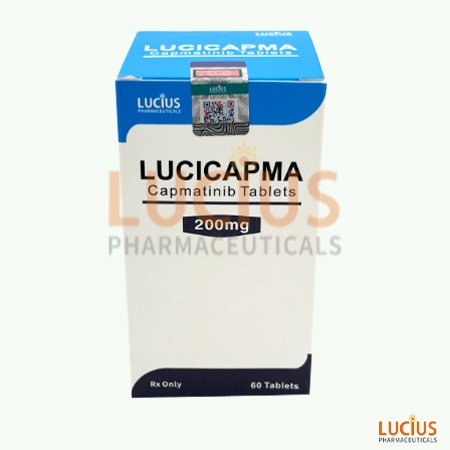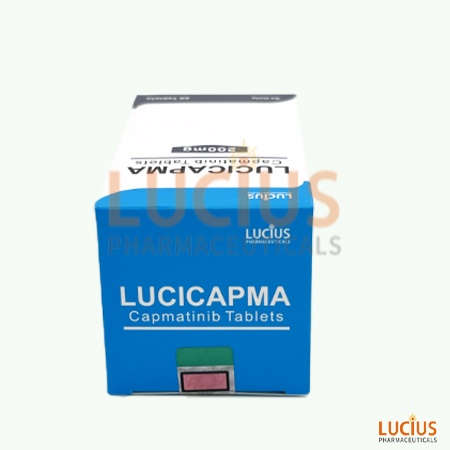





Another NameTabrecta、INC280、Rahika、卡马替尼
IndicationsIt is indicated for patients with MET exon 14 skipping mutation-positive metastatic non-small cell lung cancer (mNSCLC).
Reg No.07 L 0996/23
Inspection NO.1765-23


Capmatinib is a prescription drug targeting the mesenchymal-epithelial transition factor (MET). It was approved for marketing in the United States in May 2020 and must be used strictly in accordance with the doctor’s instructions.
Capmatinib is a kinase inhibitor that primarily targets MET, including variants generated by MET exon 14 skipping mutations.
Capmatinib can inhibit MET phosphorylation triggered by hepatocyte growth factor binding or MET amplification. Meanwhile, it can also suppress the phosphorylation of downstream signaling proteins mediated by MET, as well as the proliferation and survival of MET-dependent cancer cells.
Route and Frequency of Administration for Capmatinib: Oral administration, 400 mg twice daily.
The dosage of Capmatinib needs to be adjusted according to the patient’s actual condition. For specific circumstances, patients should consult a doctor and strictly follow the medical advice.
Recommended Reading: Dosage and Administration of Capmatinib
The most common adverse reactions (≥20%) are edema, nausea, etc.
Reference Article: Adverse Reactions of Capmatinib
Pregnancy:Capmatinib may cause fetal harm if administered to pregnant women. Currently, there are no available data on the use of Capmatinib in pregnant women.
Lactation:Due to the potential risk of serious adverse reactions in breastfed infants, it is recommended that women avoid breastfeeding during treatment and for 1 week after the last dose of Capmatinib.
During treatment with Capmatinib, your skin may become sensitive to sunlight (photosensitivity reaction). During the treatment period, please use sunscreen or wear clothing that covers the skin to minimize direct sunlight exposure.
from FDA,2023.03